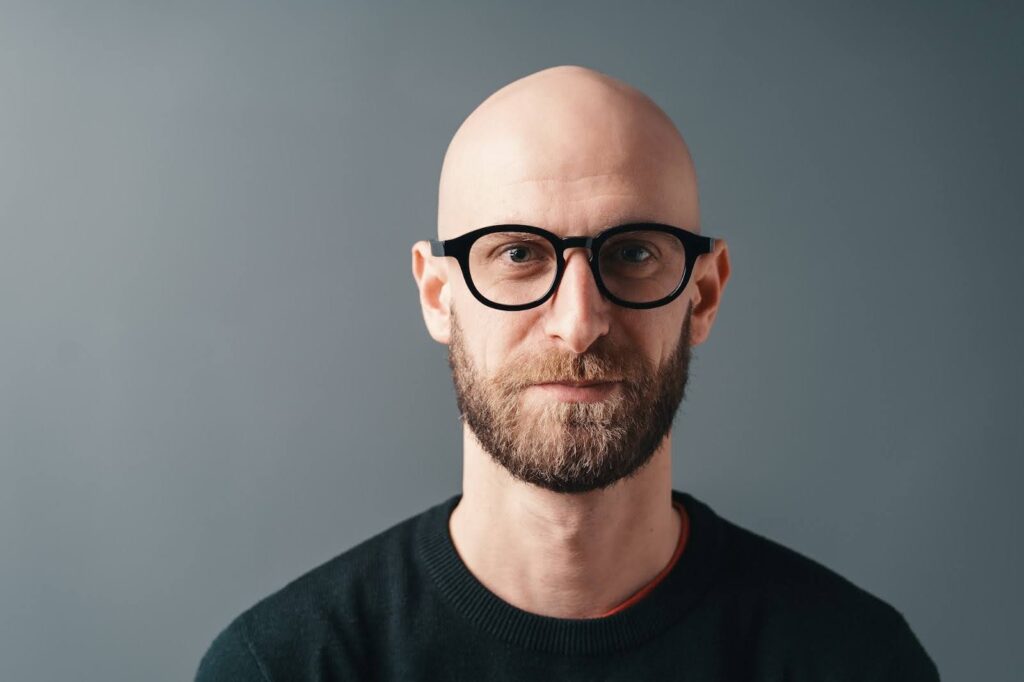Hair loss is a common problem that affects millions of men worldwide. If you are suffering from unwanted hair loss, you are not alone. Hair loss in men results from various factors ranging from genetics to stress. It’s common to assume that hair loss is solely a physical problem; however, hair loss can also profoundly impact a person’s sense of self. At Nashville Hair Doctor, we understand the psychological effects of hair loss in men. We know that hair loss can lead to feelings of anxiety, depression, and low self-esteem. That’s why we offer the FUE hair and beard transplant procedure—to help men restore their hairlines and regain confidence.
How Hair Loss Impacts Your Mind
What Are the Psychological Effects of Hair Loss in Men?
The psychological impact of hair loss in men is significant. It can cause feelings of shame, embarrassment, and even social isolation. Men often go through a range of emotions when they start to lose their hair, including denial, anger, bargaining, depression, and acceptance. However, it’s important to understand that these feelings are normal, and there are ways to cope. Here are some ideas for coping strategies while you navigate your hair loss psychology and mental health:
- Seek support from friends, family, and mental health professionals. This can help you process your feelings and emotions and feel less alone during this difficult time.
- Focus on things that boost self-esteem and confidence, such as engaging in activities you enjoy, exercising, and eating a healthy diet. These activities can help you feel more energized and positive, translating to a positive outlook.
- Try out different hairstyles or hats that work with your hair loss. Sometimes, a new style can add a spring to your step as you navigate what to do next and boost confidence when you need it most.
- Look into the FUE hair transplant procedure from Nashville Hair Doctor. This life-changing procedure implants your natural hair into balding areas on your scalp and can help you regain confidence and self-esteem.
It’s important to note that everyone’s experience with hair loss is different, and what works for one person may not work for another. Therefore, experiment with coping strategies and find what works best for you.
What Leads to Hair Loss?
Hair loss is a common problem among men for several reasons. When we look at the demographics of hair loss, your race plays a part. Caucasian men are more prone to hair loss than African and Asian men. Male-pattern baldness is the most common form of hair loss in men and is more prevalent among Caucasians.
On the other hand, traction alopecia is a type of hair loss more commonly seen in African Americans. It is a self-inflicted condition that arises from prolonged pulling of the scalp. This pulling may result from hair weaves, extensions, cornrows, and other tight braids that are more popular among African Americans.
Whatever the reason for your hair loss, the most important part is that it was unwanted and that you want to see a change. The social implications of hair loss for men can be devastating. Society places a high value on physical appearance, and hair loss is often a sign of aging or diminished virility. This can lead to workplace discrimination, relationship issues, and insecurities in social situations. Nashville Hair Doctor is the premier hair restoration clinic in Tennessee. With offices in Nashville and Memphis to service the local market, we also welcome patients from all over the country with our competitive pricing including a travel discount.
How to Mentally Deal With Hair Loss
Dealing with hair loss is a challenging experience for men, especially regarding self-confidence and mental well-being. Feeling self-conscious about your appearance can lead to avoiding social situations or feeling uncomfortable in your skin, which could result in low self-esteem and poor mental health.
So, how can men cope with hair loss mentally? The first step is to acknowledge and accept the problem. It’s essential to understand that hair loss is a common issue, and there are ways to address it. Seeking support from friends, family, or a mental health professional can also help manage the emotional effects of hair loss. In addition, focus on the things you can control, such as your overall health and appearance. Maintaining a healthy diet and exercise routine can help boost your confidence and make you feel better about yourself, even if you’re experiencing hair loss.
Another helpful tip is experimenting with different hairstyles or trying out hair pieces or wigs. This can help you regain some of the confidence you may have lost due to hair loss and make you feel more comfortable in social situations. It’s also important to remember that hair loss does not reflect your personal worth or value. You are still the person you were before experiencing hair loss, and your appearance does not determine your worth. Self-care, such as meditation or other relaxation techniques, can help you maintain a positive outlook and improve your mental well-being.
Ultimately, dealing with hair loss is a personal journey, and what works for one person may not work for another. However, by seeking help, focusing on what you can control, and practicing self-care, you can take positive steps toward managing the emotional effects of hair loss and regaining your confidence.
FUE Hair Transplantation to the Rescue
At Nashville Hair Doctor, we offer a reliable way to restore hairlines through our FUE hair and beard transplant procedure. Our highly trained technicians and specialists use the latest technology to ensure our clients get the best possible results. When it comes to hair loss and mental health, we can’t claim that the FUE hair transplant fixes everything. However, we know that hair restoration can boost self-esteem and confidence.
Hair loss can significantly impact a person’s mental health. Men need to understand the psychological effects of hair loss and seek support when needed. At Nashville Hair Doctor, we offer a safe and effective way to address hair loss through our FUE hair and beard transplant procedure. Contact us today for a free quote and to learn more about how we can help you. And remember, you’re not alone—we’re here to help.

